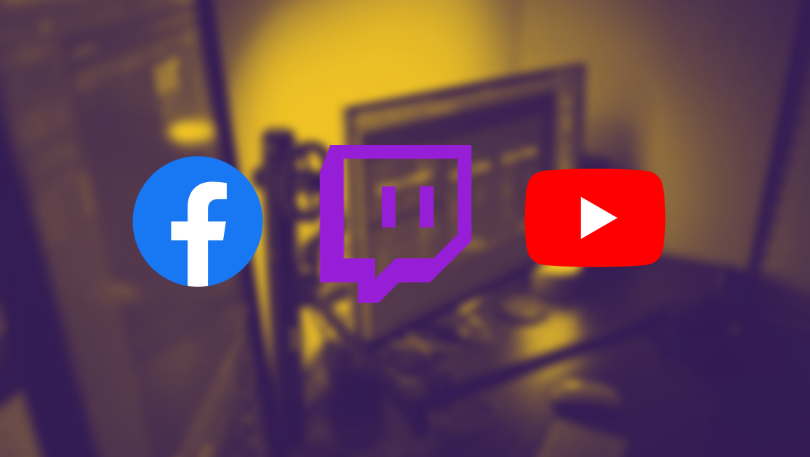Last year, Twitch announced that it would no longer allow users to stream feeds of casino-type content. The streaming platform said it would ban users from posting videos of themselves playing slots, roulette, or dice games on unlicensed sites.
The ban came into effect on October 18th, 2022, after top-tier streamer, ItsSliker, admitted that he had scammed other hosts out of thousands of dollars. Popular streamers like Felix “xQc” Lengyel were also under fire for inspiring their young viewers to gamble as they spent hundreds of thousands on big gambling sites.
Are all gambling sites banned from Twitch?
The big caveat here is that Twitch is banning unlicensed sites, not all sites. Twitch said that it might ban even more unlicensed sites in the future. However, its updated policy states that it will continue to allow streaming from websites focused on sports betting, fantasy sports, and poker.
The announcement said: “Gambling content on Twitch has been a big topic of discussion in the community and something we’ve been actively reviewing since our last policy update in this area. Today, we want to update you on our plans. While we prohibit sharing links or referral codes to all sites that include slots, roulette, or dice games, we’ve seen some people circumvent those rules and expose our community to potential harm.
“We’ll be making a policy update on the 18th of October to prohibit streaming of gambling sites that include slots, roulette, or dice games that aren’t licensed either in the US or other jurisdictions that provide sufficient consumer protection.”
Users have been asking questions for a long time about the links between streamers and the gambling sites that they promote in their streams. The site has banned users from actively linking to gambling sites, but plenty of sponsored streams remain on the platform. In 2021, one streamer said that he could earn more than $30,000 an hour by streaming himself gambling.

Confusing US licensing framework
Depending on where you live in the USA, there are plenty of licensed, legal gambling sites that you can play on. The problem with streaming is that people watching are not necessarily in the same state as the person who is playing. For example, what is legal in Pennsylvania is not necessarily allowed in Mississippi.
Each US state draws up its own regulatory framework for what it does and does not allow. For example, if you want to play slots or roulette, you can only do so in a state that permits online casino gambling. The regulations are there to protect citizens, and the advice is to avoid gambling sites that do not have the correct permits.
For example, when looking at PayPal options or other ways to make a deposit, the first thing to look for is the relevant license. If a site does not have a license, it is not legal in the US, and it is likely players will run into trouble.
Legal gambling sites have all kinds of safety nets in place. These include safe gambling tools such as age verification and deposit limits. One of the big concerns on Twitch is that underage viewers have been able to access the gambling streams. There was so much unrest amongst some of Twitch’s big streamers about gambling that they threatened to come off the platform if Twitch did not change direction and policy.
Alternatives to Twitch streaming
While Amazon-owned Twitch is the most prominent streaming platform for gamers, it is not the only one. Many streamers have welcomed the ban news and think it will make the platform safer for everyone. There are plenty of alternative streaming sites for anyone who wants to set themselves up.
The irony is that some people are threatening to leave Twitch because the ban is too easy to get around, and others because they want to get around the ban.
The best well-known alternative name is YouTube which offers a YouTube live alternative to Twitch. Alternatively, content makers can broadcast using Vimeo Livestream, Periscope, Streamyard, and Facebook Live. Each of these platforms has its own terms of service, and these must be adhered to.
What is and is not allowed can be very confusing as some of them seem to make the policies up reactively.
One of the enormous problems for policymakers is that streaming platforms do not recognize state or country borders. While regulators can enforce laws within their jurisdiction, it is almost impossible to do so on the internet. Top streamers attract viewers from around the world, and each country has its own set of laws. In addition, some of the platforms are bigger than countries. In these cases, it becomes almost impossible to determine whose policy trumps whose.
The situation is more straightforward in the US; with a population of over 330 million, US law enforcement is a powerful force to reckon with. Anyone who wants to gamble or stream gambling in the country needs to be clear about the laws where they reside.
So, Twitch might be happy for a content creator to stream poker or live sports gambling. However, if accessing these betting sites is not legal in the state in question, the gambler might find themselves in a different kind of trouble. The advice is to always check local laws and terms of service before streaming any content. As the old saying goes, “better safe than sorry.”